-
Airport baggage scanning: slow, steady pace yields better results
Next time you are doing a slow burn in security screening at the airport, calm yourself with the assurance that a more deliberate baggage scanner may do a better job. Researchers find that systematic searching frees up memory to do a better job at scanning.
-
-
TSA’s behavior detection program not cost effective: DHS IG
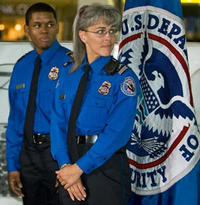
DHS Inspector General (IG) has released a 41-page report last week stating that the Transportation Security Administration (TSA) cannot ensure that its behavior detection program, known as the Screening of Passengers by Observation Techniques (SPOT) is objective or cost-effective.
-
-
TSA will continue ban on small knives
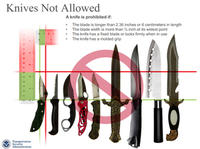
The Transportation Security Administration, responding to pressure from lawmakers, flight attendants, and the public, has decided to abandon its plan to relax the prohibition on passengers carrying small knives on planes.
-
-
DHS debars scanner maker from government contracts
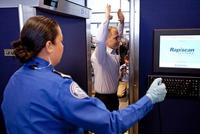
The Transportation Security Administration (TSA) has sent OSI Systems, the manufacturer of airport body scanners, a debarment notice which would prevent the company from receiving government contacts in the future. The notice was sent to the company after TSA determined that the company had failed to address security concerns about its scanners.
-
-
FAA gave bonuses to employees while flights were delayed or canceled
Internal FAA documents show that in early February, while passengers got stranded at airports across the country because sequester-mandated cuts in the FAA budget which led the agency to furlough air-traffic controllers, FAA employees received bonuses for their performance on the job.
-
-
Saudi man arrested at Detroit airport with two pressure cookers in luggage

Hussain Al Khawahir, a Saudi citizen, was arrested Saturday at Detroit Metropolitan Airport after CBP agents found two pressure cookers in his luggage, and a page missing from his Saudi passport. He said he brought them for his nephew, a university student, because his nephew liked to cook lamb in a pressure cooker and U.S. pressure cookers were just not good enough.
-
-
FAA may allow use of electronic devices on flights
The Federal Aviation Administration may announce by the end of the year that it would relax the rules for Kindles, iPads, and other e-readers. Lawmakers say that since the FAA allows iPads as flight manuals in the cockpit, and flight attendants use the devices for information on flight procedures, it makes no sense not to allow passengers to use the devices.
-
-
Terahertz technology helps to see more with less

Terahertz technology is an emerging field which promises to improve a host of useful applications, ranging from passenger scanning at airports to huge digital data transfers. Terahertz radiation sits between the frequency bands of microwaves and infrared radiation, and it can easily penetrate many materials, including biological tissue. The energy carried by terahertz radiation is low enough to pose no risk to the subject or object under investigation.
-
-
FAA oversight of jetliner repair stations is ineffective
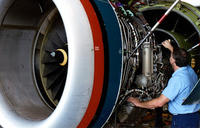
The FAA oversees 4,800 jetliner repair stations worldwide – in countries such as China, New Zealand, Peru, and Singapore – where American commercial airplanes are being repaired. The Federal Aviation Administration’s own watchdog organization reported that the oversight of U.S. jetliner repair stations is ineffective and does not focus on stations which are most likely to present security risks.
-
-
Canada considered deporting train terror suspect – but he was stateless
Raed Jaser, who is accused of planning an “al Qaeda supported” bomb attack aiming to derail a Canadian passenger train, was arrested nine years ago in Toronto and was facing deportation because he had a criminal record. Jaser is a Palestinian who grew up in the UAE. The UAE never gave his family a UAE citizenship, and they refused to take him back. The Canadian authorities say his case is not unique.
-
-
Typo delays signing FAA budget bill into law
Typically, Congress, the country’s deliberative body, tends to take its time when it comes to legislation. This tendency was not in evidence when it came to rescheduling sequester-mandated cuts to the Federal Aviation Administration (FAA) budget in order to allow air traffic controllers to work their full schedule without being furloughed. The president was supposed to sign the bill Friday – but in its rush to pass the measure, the version which was delivered to the White House contained a typo (an “s” was missing). The president will sign the bill today.
-
-
White House to take a second look at FAA furloughs
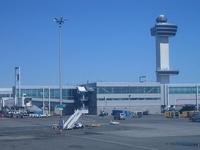
The White House hinted Wednesday that it could accept legislation which would end Federal Aviation Administration (FAA) furloughs. Passengers have been in arms over lengthening flight delays and a growing number of flight cancellations, while GOP lawmakers accused the FAA of implementing the sequester-mandated budget cut in such a way so as to cause maximum inconvenience to passengers.
-
-
Experts: security of U.S. mass transit system must be tightened
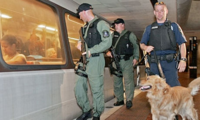
Counterterrorism experts are arguing that security on America’s mass transit lines must be tightened in light of the foiled plot to attack a Toronto passenger train. The plan to attack Canada’s transit system highlights security holes in America’s commuter system, and the challenges involved in securing this vast system.
-
-
TSA reverses course on knives-on-planes policy
The Transportation Security Administration (TSA) has abandoned, for now, its proposal to allow travelers to carry small knives on airplanes owing to significant opposition from lawmakers, air marshals, law enforcement officials, and flight attendants.
-
-
FAA furloughs begin with impact on flights slight so far
Sunday was the first day of FAA furloughs, but commercial airline flights ran smoothly throughout the country. There were delays in New York area airports, but nothing that was considered significant. There were also delays in Florida, but they were caused by thunderstorms.
-
More headlines
The long view
New Technology is Keeping the Skies Safe
DHS S&T Baggage, Cargo, and People Screening (BCP) Program develops state-of-the-art screening solutions to help secure airspace, communities, and borders
